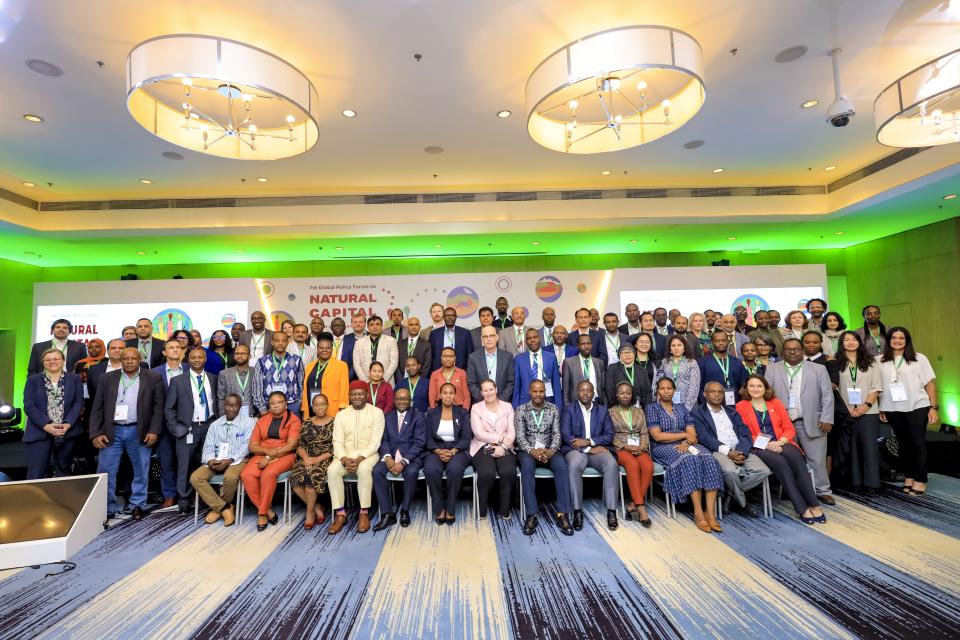Rwanda hosts the 7th Policy Forum on Natural Capital: Data, accounting and analysis for biodiversity policies

UNSD together with the World Bank and the Government of Rwanda organized the 7th Global Policy Forum on Natural Capital, from 5-6 March in Kigali, Rwanda. This Forum is part of a long collaboration between UNSD and the World Bank to bring together data users and producers and to share knowledge and experiences on incorporating natural capital accounting (NCA) and approaches in decision making. This year the Forum focused on “Implementing the Global Biodiversity Framework (GBF): Leveraging Natural Capital Data, Accounting and Analysis to Inform Policies”.
About 100 participants attended the meeting in person and 300 participants connected virtually to the event. The SEEA featured prominently during the meeting. The Forum was opened by the Minister of State for the Environment of Rwanda, the World Bank Country Manager for Rwanda and the UN Resident Coordinator for Rwanda, in addition several other high-level participants from countries all over the world attended the Forum.
The Forum participants discussed policies that will help with the implementation of the National Biodiversity Strategies and Action Plans (NBSAPs) and thus contribute to the achievement of the GBF goals and targets. Over two days, sessions highlighted the importance and need to leverage existing data and analytics on natural capital and ecosystem services, including natural capital accounting, to design such policies and actions.
UNSD organized a session on “Importance of Natural Capital Accounting for GBF monitoring framework” to introduce the GBF monitoring framework and show how can NCA contribute to the GBF monitoring framework, advantages and challenges of NCA for countries to report on the GBF, and share country experiences on compiling NCA. UNSD virtually introduced the GBF monitoring framework and presented on the SEEA and the SEEA-related indicators of the GBF monitoring framework.
The Forum illustrated how natural capital accounting offers critical data for devising investments, regulations, and monitoring systems that help address the drivers of nature loss, and how economic instruments, like repurposing subsidies and implementing payments for ecosystem services, can be more precisely targeted using detailed spatial information from natural capital accounts.
More information, including presentations and recordings, can be found on the event page.
Read the related blog Accounting for the diverse values of nature to inform biodiversity policies.
